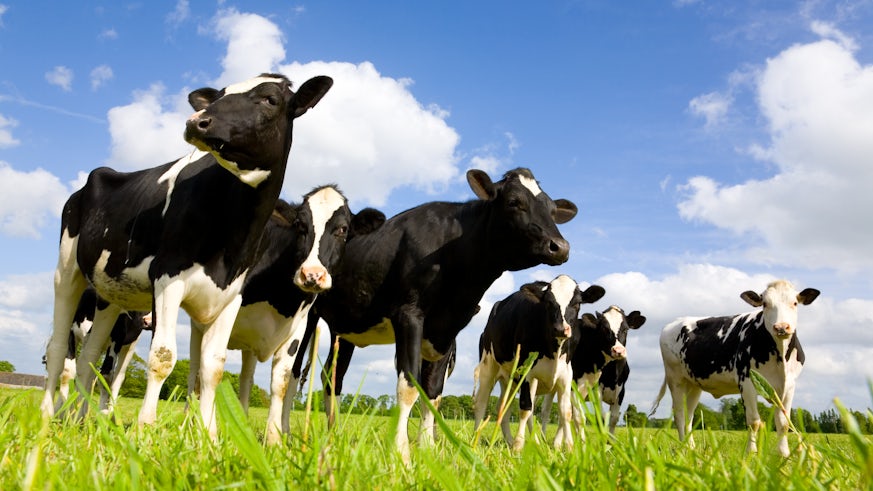Dairy cattle and climate change – can genetics help us adapt?
24 June 2019

It is well documented that livestock production contributes to global climate change, however livestock is also affected by climate change and substantial modifications will be required to increase its resilience to a warming climate.
Our current reliance on dominant commercial breeds of dairy cattle makes current production strategies vulnerable. As a result the adaptability of commercial animal populations to future environments will become increasingly important, especially as the climate becomes warmer, conditions for disease become more favourable and production costs are set to rise.
Heat stress is one of the most pressing factors affecting livestock production and has been shown to cause both a decrease in milk production as well as lower conception rates in cattle. In order to address this an efficient strategy is needed to introduce adaptive traits quickly into commercial breeds or these breeds may need to be replaced with better adapted populations.
Undertaken as part of ClimGen (Climate Genomics for Farm Animal Adaptation) the study, published in Heredity, aimed to help evaluate the role of genetics in climate adaptation by comparing genetic selection strategies in dairy cattle using state-of-the-art breeding simulations.
The ClimGen project focuses on the identification and use of genomics technology for building livestock resilience to climate change. Bringing together previous and ongoing national, EU and global efforts to understand livestock adaptation to climatic extremes, the project seeks to identify genomic tools and biomarkers that can be used to predict adaptation in livestock populations to thermal and related challenges.
The results of the study suggest that both adaptation and production can be improved simultaneously, highlighting the need to develop tools to balance productivity with local adaptation to enhance climate resilience in the livestock sector.